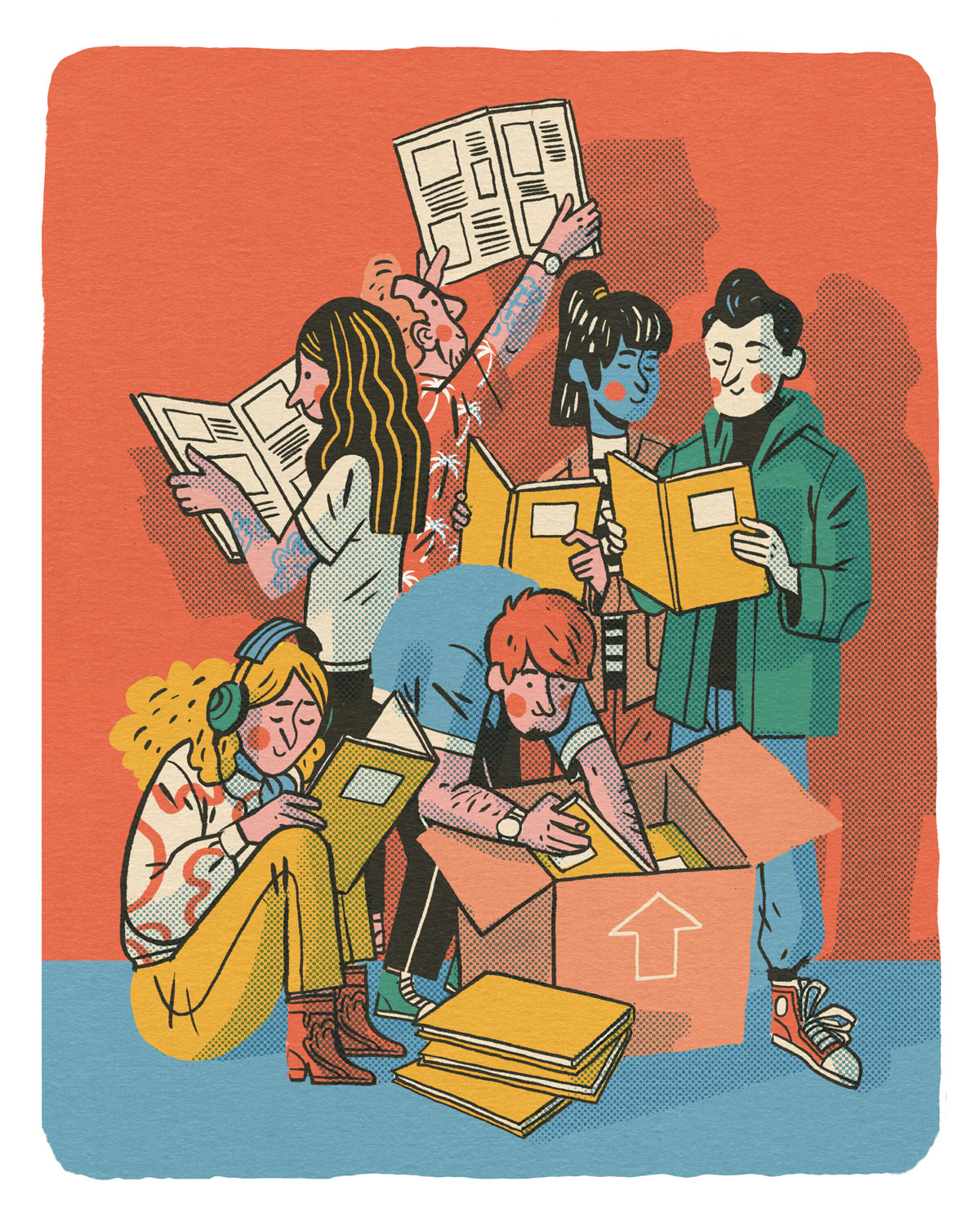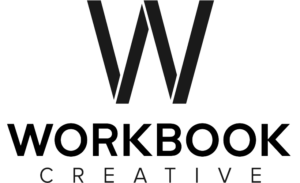Erica Chadwick and Joe Lombardo of ETC Creative had known each other for quite a while before they decided to form their partnership in 2009, but once they did, they had to ask themselves why it took so long. They answer this question and many others about how their partnership has evolved over the last seven years, how they make it work day-to-day, and what they think the future holds.
Workbook: Please tell us a little bit about your professional lives prior to the creation of ETC.
Joe: I had 15 years’ experience representing photographers at a few different agencies and also owned a production company.
Erica: I had a few years’ experience representing photographers and had been a producer and photographer prior.
Workbook: How did you first meet?
Erica: We met in 2002 at a time in the industry when artists had different representation in each major city. We shared artists – with Joe being the agent on the East Coast and myself being the agent for the same photographers in the Midwest.
Workbook: What were your first impressions of one another?
Erica: I thought Joe had high energy; he was a word craftsman and could spin a lot of plates at the same time. He had a way with people, and he was fun to be around. It was always a good time to spend a night out on the town with Joe.
Joe: Erica didn’t play the games that some other in the industry play. In a lot of ways, she was unimpressed with “the show” of it all, and I liked that. She saw things honestly and to me was very human and relatable. We felt like old friends in a short period of time.
Workbook: What made you decide that you wanted to form a partnership with anyone, and specifically each other?
Joe: We had each been trying to find ways to expand our reach into other territories and increase our knowledge and contact-base independently, but neither one of us was really looking for a partnership.
Erica: I had mentioned to one of my artists that I got advice from Joe a lot and loved chatting with him. He said to me, “It would be a good thing if you two were partners.” A light bulb went on for me. Sometimes a critical piece of your life can be something you never realize yourself, and someone can give you insight for which you are so grateful. If that photographer had never said that, I am not sure it would have happened. The next day I called Joe and asked him if he wanted to have a conversation about joining up together and he said, “Why didn’t we think of this before?!!” We both knew we could learn a lot from the other person. It was during a time in the business where it wasn’t much fun to do the job, things were shifting so quickly; the economy was in a terrible recession. It was in 2009, and if we were going to ride out the bad economy, it looked like a hell of a better view of the road ahead to do it with a friend.
Workbook: What were your biggest challenges in setting up your partnership?
Joe: We had two backgrounds that had two different voices, mine coming from New York with more of a fashion perspective, and Erica’s from the Midwest, with more of a lifestyle and food/product focus. It took time to figure out what the new voice of our new agency was going to be.
Erica: Also, it took time to learn how to work in tandem. For the first 6 months, we were both doing our own thing and reporting to each other each day. After some time, we discovered Skype. That technology changed everything. We would be on Skype all day and were able to see what the other person was great at in real time. That led to a new way of doing business in which we learned to divide and conquer.
Joe: A few years into working together we came to another epiphany. We knew we needed to continue to define who we are as agents, then as a company, and finally, what we value in business together overall. We developed a set of core principles. We shared them with our artists so that we would all be in the same space when dealing with conflict, when determining the types of clients we want to work with, and in setting the tone of our communication amongst members of our agency.
Workbook: How long have you been working together as ETC? What do you like best about working with a partner? What do you like least?
Joe: We got together in 2009, so 2016 would be our 7th year.
Erica: I have 2 kids. Joe covers for me whenever I need family time. That alone is huge, and I always feel so much gratitude for having that in my life. He encourages me to have even more family time, so he’s a little unreal – a bit of a guardian angel. In business, the best thing about it is that he is great at things I’m not a natural at. Our partnership goes to more than business relationship, where we are both looking out for the others’ best interests and growth in every way. We are kindred spirits looking after each other’s space and time for mind, body, and spirit, as well as our bottom line.
Joe: Generally speaking, it’s hard to form bonds when you feel like there is no legacy and trust out there. Ours is a world and industry that is constantly shifting. Our business is a home, a place where I am confortable in my own skin, and I feel safe here.
Workbook: And the Least?
Erica: Sometimes I don’t have all the information at my fingertips. But, it would be impossible for me to have all of it on my own with how much work we have. I’d have that issue working in any group.
Joe: At times I don’t know when to step into a relationship with a client or artist because of the delicateness of that relationship. Erica has hers; I don’t always know if my personality would be the best to handle an interaction with an artist or client.
Workbook: Do you have a clear delineation of “who does what” in your business? Or do you each pretty much do everything, depending on the day and what is needed?
Erica: Going back to the prior conversation about how Skype changed us: one day we were burned out from working nonstop, and Joe turned to me and said, “Let’s do this a different way. What do you really like doing, and what would you rather not do? Lets figure out who loves doing what so that we each do what we love.”
That was a game changer. It gave us both so much more freedom to be who we are, and it shifted the energy and the bottom line of the company instantly.
Joe: We realized we could live in the space of doing what we love, grow the company exponentially, and be happier people focused on what each of us is good at.
Workbook: Do you share all communication with each of your clients, or do one of you perform pretty much as “lead” producer on each project?
Joe: We share all communication. Then we divide up what we do into what we each love to do. I took the lead as the booking agent and client account manager. What I realized early on is that I like the play of interaction between people, and being at the center of that makes sense for me. The thrill of closing a deal and producing a project in tandem with the artists kept me in the action – and that’s where I like to be. Erica took over traditional and social marketing, and administration. She is highly organized and gets things done quickly and efficiently. We both collaborate on the creative direction of the agency and enjoy coming together and talking about what we are going to do next.
Workbook: How do you decide to add talent to your roster?
Erica: Typically artists reach out to us, and if they are a good fit, we will add them. It’s rare that we go looking for talent. It happens organically. We just seem to bump into the right artists at the right time.
Joe: We have come to realize that the most successful artists are the ones that are energetically aligned with their work. So, for example, if we sign a lifestyle photographer who has a carefree-feeling portfolio, we want that person’s personality to be that representation of his work. We want our artists to live what they shoot. Their work is a reflection of their spirit.
Workbook: What was the best job you did last year?
Joe: We started a pro-bono assignment with Harold Julian and FCB Healthcare for Blood Equality. The campaign is still ongoing. The FDA had banned blood donations by gay men, and the campaign sought to change that. Their website opens to copy that says it’s “Time for Science, Not Stigma,” and we wanted to be a part of the change. It’s a good feeling to contribute the advancement of society in some way and to influence people to honor one another.
Workbook: Every photographer is different of course, but what are the expectations to which you hold your photographers? Do you have a list or requirements?
In response Joe and Erica provided us with this list:
– A comprehensive marketing and advertising plan
– A well thought-out website
– Recently we introduced the advice and strategy of a consultant, which has become a requirement.
– The ability to create great treatments
– To highlight their best qualities during an agency conference call
– That they agree with out company’s core values and know we all work with one another in that space of communication
Workbook: Every rep is different of course, but what are your talents’ expectations?
In response Joe and Erica provided us with this list:
– Having portfolio reviews with buyers and staying in touch on a personal level
– A complex and integrated social media strategy to promote their work in non-traditional channels
– Transparency in estimating and invoicing and in our communication about clients and interest in the artists’ work
– An understanding of their working process and how that works within each job
They also added that it is essential that they be there to help with client management and production as well as offer guidance on the trends they see coming in a rapidly changing industry.
Workbook: What industry trends do you see that you find exciting?
Joe: We’ve always found motion to be exciting. The ability to communicate stories in more comprehensive way, rather than in one moment, has every artist in our agency thinking in new ways about the image – still or moving. When motion, special effects and sound design all come together; it’s a new thrill for the entire group. Photographers now have the opportunity to discover new tools and media that expand who they are and what they have to offer as artists.
Workbook: What industry trends do you find disturbing?
Erica: Some clients want usage on an entire library of shots on a job and don’t understand the cost implications and production implications of doing so. The same can be said for a lot of jobs having the request that the image use is in perpetuity. It’s not always possible for this to happen because of reasons outside of our control to license the image. There are talent/models to consider in most cases in the re-sale of an image. Agents who represent models won’t agree to use in perpetuity. They will limit the time length to five years, maximum. The recent changes in editorial contracts are a bad deal for photographers.
Joe: We would like to see a shift in how companies are looking at the usage in social advertising. It’s still seen as a usage buy that is less than print when seeking pro-photographers, and that could not be further from today’s reality, due to the influence of the web. Most people are getting their news and information from social platforms, and now brands have the ability to interact with the public and the consumer as the result. So, the value of the outreach in social advertising should be worth more in the marketplace, and photographers therefore should know how to place proper value on their productions.
Workbook: If you could change one thing about how your business works, what would it be?
Joe and Erica: We wish it would run itself so we could hop on a jet to Hawaii and drink cocktails on the beach!
Workbook: Do you think that geography impacts buying habits of creatives? How are art buyers, art directors, and creative directors the same from region to region? How are they different?
Erica: East Coast has an edge, the Midwest has a hearty and warm feel, and the West has a laid-back vibe. Those are the stereotypes, right? They tend to be true to a certain degree, but that’s primarily because of the client base in each of those regions. It’s rare to find a clothing designer based out of the Midwest, for example. They are on the East Coast. Most of the food corporations are based in the Midwest – so the agencies in those areas service the clients they have and the vibe of regions in advertising seems to follow that.
Workbook: Describe a project you haven’t yet done, but want to do.
Joe: Something in the realm of virtual reality – right now we have a sound designer on our roster who is producing music in the virtual space. We know that brands are creating virtual reality studios now, and we want to be a part of that movement as it is an advancement in technology, and we love technology here at ETC.
Workbook: What surprised you most about how your partnership has evolved?
Erica and Joe: The amount of meetings it takes to get it all done and be in sync company-wide. In the area of divisions of duties, we’ve found that as we grow as a company it has become necessary to build more ways to reach our audience and be constantly engaged in what and how we present our artists’ work. This has necessitated more meetings than we ever thought possible. We run our company much like a democracy, and we look for our artists to be in the conversation with us. So to be able to be an effective team – to get it all down on paper and get it right – takes a lot of person-hours gathering together to produce a result. We wish we could all read minds to make this process less time-consuming, but we are often times better for sharing with each other in this way.
Workbook: What is next for ETC Creative, Inc.?
Erica and Joe: We are going to be expanding our reach with all things motion. We have recently signed Lionfish Music to our roster of services, and they provide sound design and music supervision to broadcast productions. This is very exciting for us as we are all big fans of sound as it intersects the advertising space.
Our blog is also going to be a place where we share our company CORE VALUES and content associated with them. Here is a short list of hashtags that you can explore with us on our blogspot.
ETCLife
ETCFearless
ETCBelong
ETCInspire
ETCReal
ETCInnovate
ETCCurate
ETCGrow
Joe and Erica closed by saying they are excited about curating and adding new and interesting art and conversation to their blog that hasn’t really been seen in this business before. Watch for more posts about their CORE VALUES Campaign here at Workbook in the coming months.







